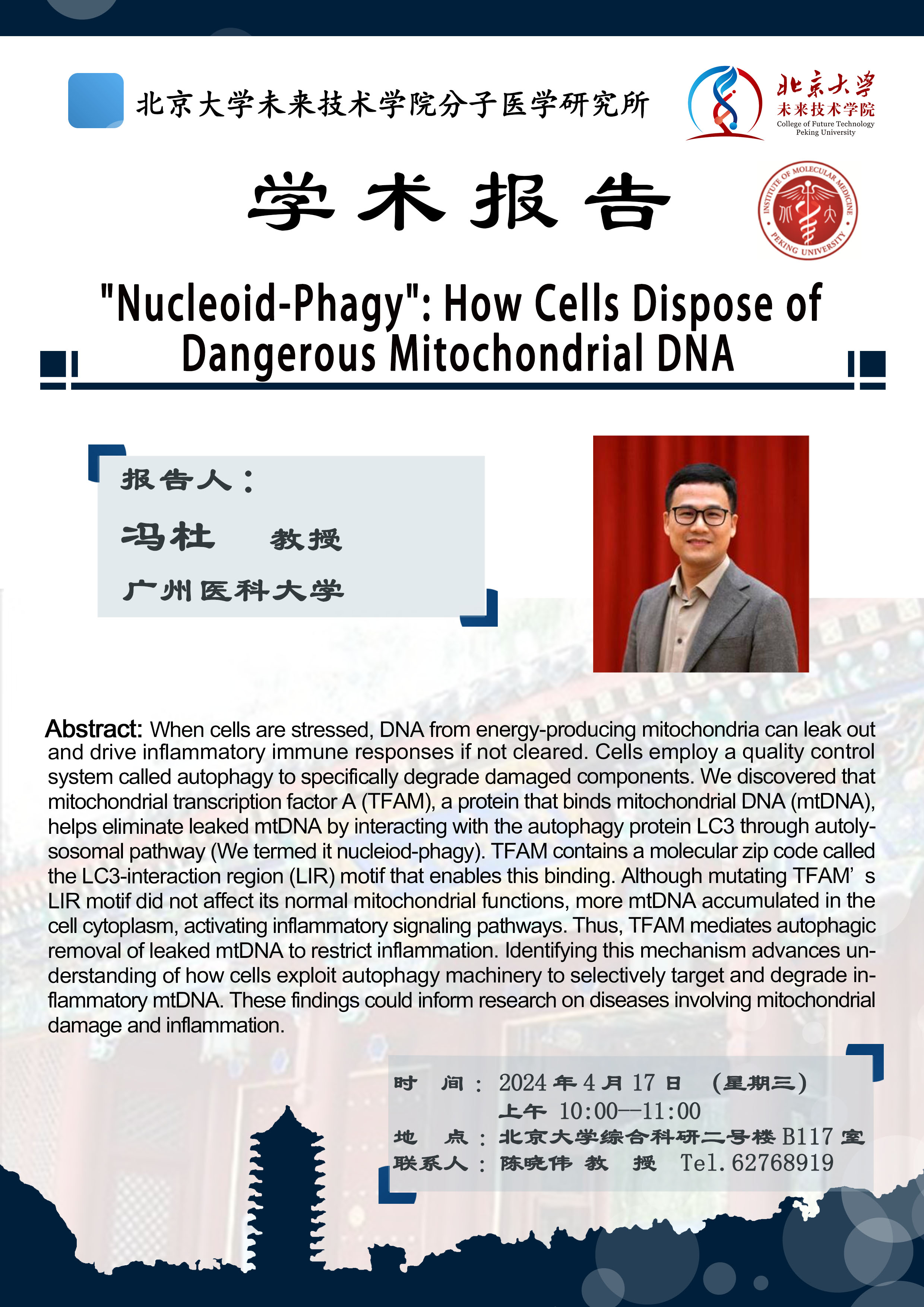
Speaker: Feng Du, Guangzhou Medical University
Time: 10:00-11:00 a.m., April 17, 2024, GMT+8
Venue: B117, Research Complex #2, PKU
Abstract:
When cells are stressed, DNA from energy-producing mitochondria can leak out and drive inflammatory immune responses if not cleared. Cells employ a quality control system called autophagy to specifically degrade damaged components. We discovered that mitochondrial transcription factor A (TFAM),a protein that binds mitochondrial DNA (mtDNA), helps eliminate leaked mtDNA by interacting with the autophagy protein LC3 through autolysosomal pathway (We termed it nucleiod-phagy). TFAM contains a molecular zip code called the LC3-interaction region (LIR) motif that enables this binding. Although mutating TFAM's LIR motif did not affect its normal mitochondrial functions, more mtDNA accumulated in the cell cytoplasm, activating infammatory signaling pathways. Thus, TFAM mediates autophagic removal of leaked mtDNA to restrict inflammation. Identifying this mechanism advances understanding of how cells exploit autophagy machinery to selectively target and degrade inflammatory mtDNA. These findings could inform research on diseases involving mitochondrial damage and inflammation.
Source: School of Life Sciences, PKU
